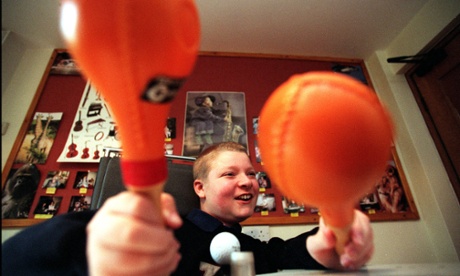
As a medical student I marvelled at the magic little pills could do. I watched fatal malarial fevers dissipate and resolve, I saw suppurating, oozing wounds smooth over and heal, cancers regress and disappear under the wondrous effects of little coloured capsules and tablets. The power of modern western medicine can be awe-inspiring.
But the more experienced I became, the more I began to realise that for all its wonders there are many things modern medicine cannot come close to healing or even understanding. We may have pills to unclot blood and clear clogged arteries but we have nothing for a broken heart or lonely soul. Our biomedical model of illness and disease can do much but it lacks a lot.
How does a dying woman hang on until her grandchild is born, how are so many more boys than girls born after great wars, what is the placebo effect and how does it work? These are some of the many things we cannot explain and so we dismiss them as oddities or anomalies in science. We fail to realise and acknowledge the complex context of the person that has the illness. As Hippocrates said: "It is more important to understand what sort of person has a disease, than what sort of disease a person has." There is no pill which will have everything we need to make us healthy and there never will be.
In my career I have met some awful doctors and some exceptional ones. The exceptional ones have taught me that medicine is an act of love and brotherhood. That true healing comes from people, not machines or chemicals or protocols or pathways but from us all to each other. It comes from art and companionship and love and trust.
Several years ago I visited the Bromley-by-Bow GP clinic. I was struck by the story of a group of elderly Bangladeshi widows. These women who had relied entirely on their husbands and were completely isolated by deep cultural and language barriers. They almost all suffered with poorly controlled diabetes and were regular attendees of the local AE and GP surgery.
The surgery started a gardening group for these women and as they got out and exercised and laughed and gardened together they developed a network of support. Their diabetic control improved and they became significantly less frequent visitors to AE and the GP. Watching how this group worked was one of several factors that inspired me and my partners to focus, through our medical clinic, on wellbeing. Specifically we work on six areas of wellbeing: lifestyle, participation, relaxation, support, security and environment.
All these areas need to be considered and addressed in the assessment and promotion of wellbeing. It is hard to complete your chemotherapy if you are suffering abuse at home. Your obstructive lung disease will deteriorate and not respond to normal medical treatment if your home environment includes damp and squalid conditions. Recent studies show loneliness is a bigger risk factor for having another heart attack than not taking statin medication (the current gold standard treatment).
If the NHS is to survive then we must look at the big picture of health and wellbeing. We have developed a dependence on medicine which is not sustainable. There are many cheap, local and effective treatments which do not involve darkening the doors of our struggling hospitals or GP consulting rooms. We need to look to each other to provide participation, security and support to our neighbours, friends and colleagues.
Our clinic in Brighton is the first integrated NHS GP practice. We use a wide range of therapies, including acupuncture, massage and osteopathy, and as these therapies are not part of the NHS we have set up a charity to fund them for people on low incomes. We also have a centre where we offer therapies in the visual, literary and performance arts as well as support and companionship groups. Some have questioned our actions. Of course the biomedical model of the body acupuncture makes no sense. However, if I look back at the history of western medicine and how it has evolved over the millennia, doctors have done some wonderful and some awful things in their attempts to help and relieve sickness. They have often held misguided views for too long and failed to accept new ideas or listen to patient experiences with an open mind. In short for all its greatness the consistent failing of modern medicine has been its arrogance. Our model of the body explains a lot but it does not explain everything.
Perhaps the answer to the conundrum of how to meet the ever increasing demand on the NHS is to extend the parameters of primary care past the role of the medic and into the arena of wellbeing? I have been hugely humbled by the amount of extremely talented people who have offered their services voluntarily to the Practice. Artists, photographers, film-makers, dancers, authors, therapists, retired counsellors and many others have come forward to help us offer narrative workshops, art therapy, exhibitions for artists struggling with mental health issues, singing groups, film production and dance workshops and most importantly, companionship.
The role of a future practice will be more than consulting rooms for GPs and nurses, it will offer a platform for people in the community to give according to their ability and take according to their need.
Successful projects such as ours rely on us all being open, embracing differences and celebrating life together.
"If you want to go fast, go alone. If you want to far, go together." – African proverb.
Interested in finding out more about how you can live better? Take a look at this month's Live Better Challenge here.
The Live Better Challenge is funded by Unilever; its focus is sustainable living. All content is editorially independent except for pieces labelled advertisement feature. Find out more here.

